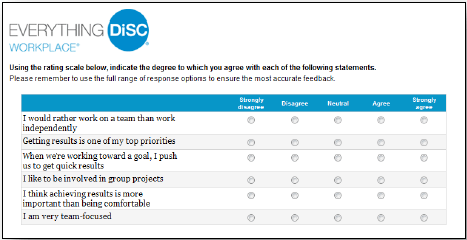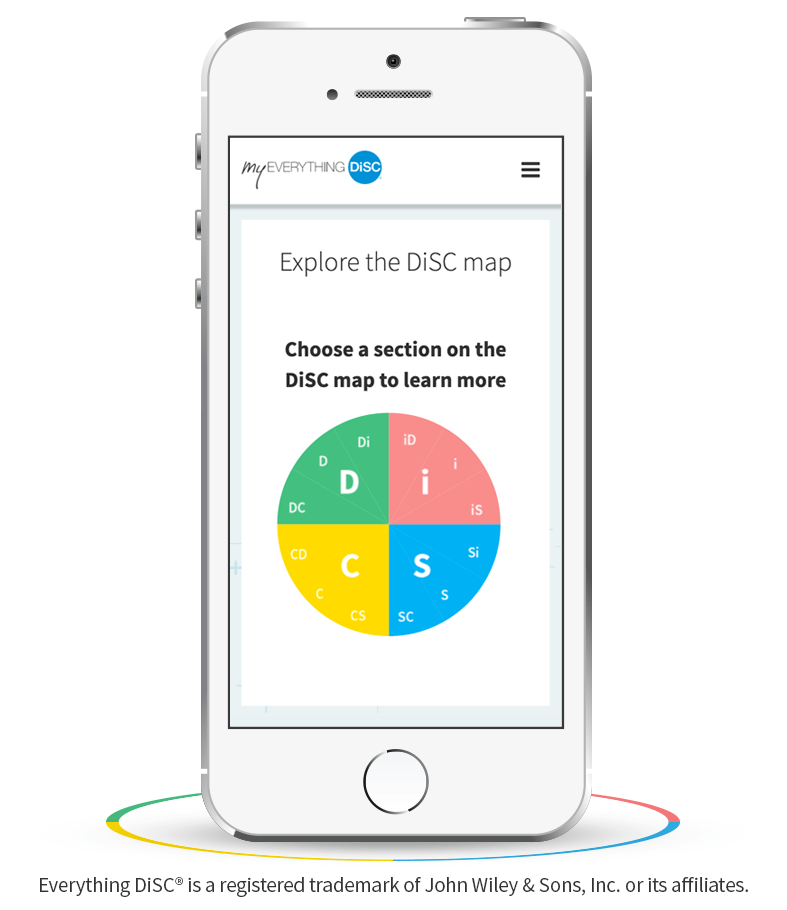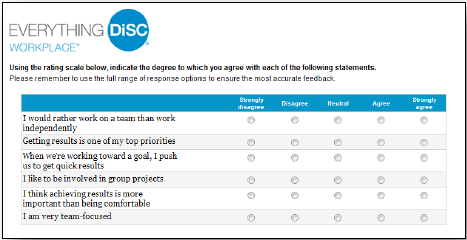People often wonder what the DiSC questionnaire or survey looks like.
Here are some examples.
How it used to be : DiSC Profile questionnaires
The questions from the DiSC Classic Assessment were quiet different from what you can see nowadays. There were 28 boxes containing four words each. In each box, you were asked to choose one that is most like you and one that is least like you. Consequently, you would review a total of 112 words. The image just below represents the actual version of the questionnaire with a choice that is made on a Likert scale. This is more flexible and easier for most participants, for the editor it provides better accuracy, with support from adaptive technology. 
How it is nowadays : Everything DiSC questionnaires
This type of questionnaire is easier to take, especially for those who are not native English speakers. It takes about 15 to 20 minutes to complete and uses a rating scale which is easier for most people.

Computerised adaptive testing
This form of testing responds to the test taker and the questions presented are adapted according to how previous questions were answered. You’ll also notice that people are responding to a phrase instead of a single word. Everything DiSC Workplace and all other Everything DiSC profiles use this form of assessment. Wiley has found adaptive testing to be 32% more accurate than forced choice, used in DiSC Classic.
If you’re not sure which assessment you want to use with your staff or clients, you can have a look at this overview of the Everything DiSC Profiles.
If you’re curious about what the final reports look like, see these examples:
![]() Everything DiSC 363 for Leaders Sample Profile Report
Everything DiSC 363 for Leaders Sample Profile Report
![]() Everything DiSC Management Sample Profile Report
Everything DiSC Management Sample Profile Report
![]() Everything DiSC Sales Sample Profile Report
Everything DiSC Sales Sample Profile Report
![]() Everything DiSC Work of Leaders Sample Profile Report
Everything DiSC Work of Leaders Sample Profile Report
![]() Everything DiSC Workplace Sample Profile Report
Everything DiSC Workplace Sample Profile Report
The free comparison report is available with all Everything DiSC profiles.
If you’re using another version of a DISC assessment, you’re likely to see fewer questions and results that have not been as rigorously researched and tested.



